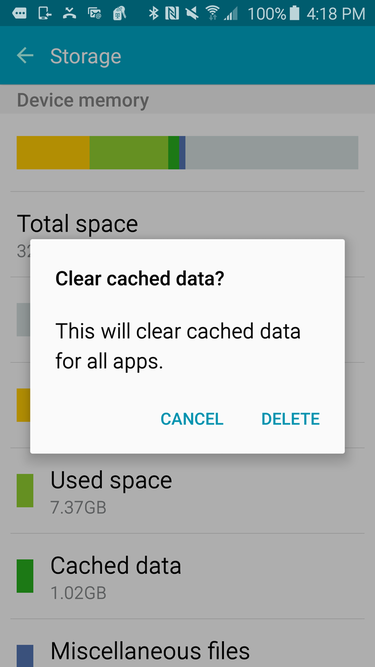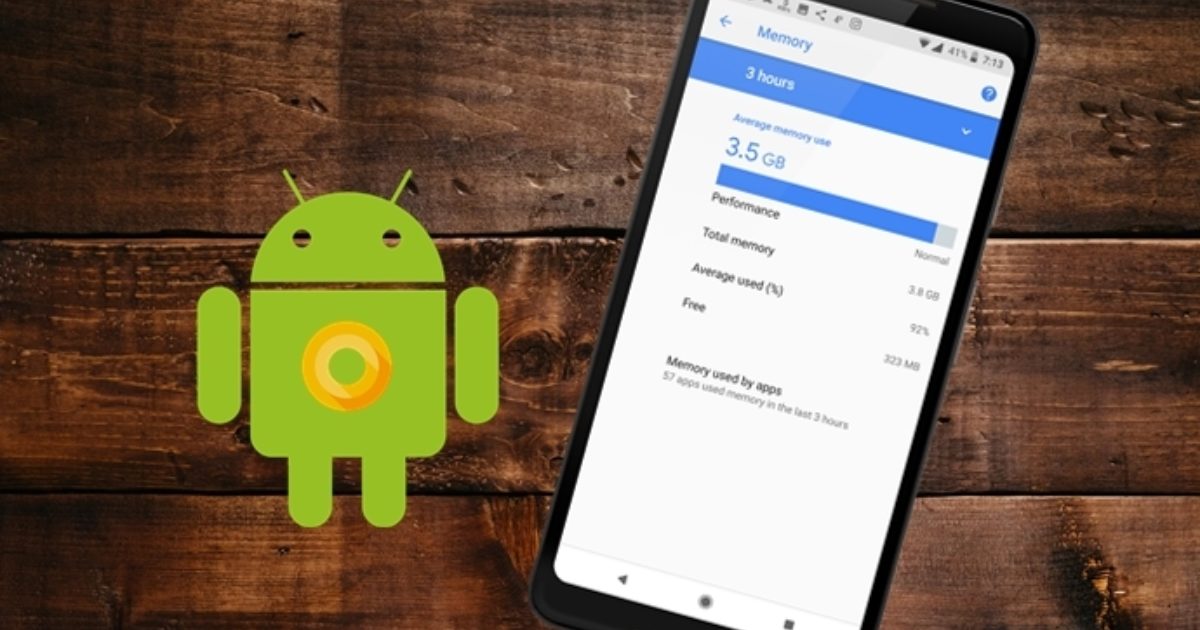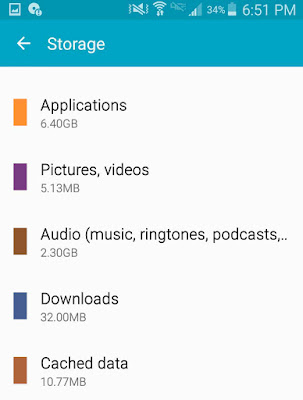Though 32GB, 64GB and 128GB of Android internal storage sounds large and adequate for daily use, it easily gets full in few years when you have lots of files piled up on your Android phone/tablet(especially apps and games, which might reach 100MB each). You know, we have dozens of apps installed on Android not to mention videos, music and photos. To avoid slow response, you need to get your Android phone a thorough cleanup. There are different methods provided for Android device users.
Solution 1: Free Up Android Space without Losing Anything
1. Compress photos. The first thing we can do to free up our Android space is to compress Android photos without sacrificing photo quality. There are many photo compressing apps offering for help. You just need to download one on your computer and have photos and videos on your Android device scanned. After that, the app will show you the original size of your photo album and the compressed size.

2. Move apps to SD card. Apps will be installed on your phone by default if you didn't choose to install apps on SD card. To move apps to SD card, you just need to go to 'Settings' > 'Storage' > 'Internal storage' > 'Apps' > find the app > hit on 'CHANGE' > 'SD card' > 'MOVE'.

The First way out of cluttered RAM is heading to check the memory usage on your Android device. To clear RAM in an Android device, you must know what is really eating your phone’s storage and then quickly remove it free up the RAM.
I recommend encrypting your device before you are getting ready to wipe it. The encryption process will scramble the data on your device and, even if the wipe doesn't fully delete the data, a. To clean up Android apps on an individual basis and free up memory: Open your Android phone’s Settings app. Go to the Apps (or Apps and Notifications) settings. Make sure All apps is selected. Delete Temporary Files. Just as your computer stores temporary internet files, your smartphone apps often store temporary files in your device's internal memory. This temporary data can pile up and eventually take up a considerable amount of space. Delete such files occasionally to free up more space. Android manages the memory that apps use. You don't usually need to close apps. But if an app isn't responding, try closing the app. Learn how to troubleshoot apps that aren't working.
Solution 2: Copy Files to PC or Cloud
1. Upload Photos to Google Photos. Google Photos allows you to upload photos onto cloud with either high quality or original one. You can also upload other files and documents to Google Drive and other cloud storage service.
2. Copy Files from Android to Computer. Make sure that the important files you want are included and back up your Android phone. Just simply back them up to your computer with Android data manager. After making sure that your Android phone data is copied, you can delete the photos, videos or music that is not frequently used from your Android. The deleted files are not gone forever, you can recover them back with FonePaw Android Data Recovery anytime you like.
Solution 3: Delete Useless Files or Uninstall Bloatware
1. Clear App Cache. As we use our Android app, some cache files on your Android phone will be added up. To get more space, you have to clear app cache from time to time. Go to 'Settings' > 'Apps' > choose the apps > hit on 'Storage' > 'CLEAR CACHE'.
2. Delete useless file folder. Another way to wipe Android files for more space will be deleting useless folders or files with Android file category direction.
3. Delete useless files with Root Explorer. Install Root Explorer and locate '/data/local' directory. Then, find the folder named 'rights' or 'tmp' and empty the folders. After that, the apps that failed to be installed will be erased.
4. Root Android and remove bloatware. There are many bloatware pre-installed on our Android phone, to get Android phone tidied up, we can root Android phone to get the superuser mode and you can now uninstall pre-install apps by going to 'Settings' > 'Apps' > choose the app > 'UNINSTALL'.
Solution 4: Factory Reset Android Phone
If the methods above don't work for you, you have to try to factory reset your Android phone: Go to 'Settings' > 'Backup & reset' > 'Factory data reset' or flash a new ROM for Android phone to get more Android phone.
As you can see, there are many useful way to free up Android space when the internal phone memory is full. Try them one by one to get more storage for your Samsung Galaxy S7/S6 Edge+/S6, HTC, Sony, Motorola and more Android phone and tablet.
How to Clean up and Release Android Memory
In the previous passage, we have talked about how to change the default install path of Android and move apps to SD card to save storage space. Though Android 2.2 has the function of Apps2SD, supporting apps to be installed and moved to SD card, still some apps cannot. Some system files and privacy are remained in internal memory card. The phone has limited storage capacity configuration. Some other programs like Widgets, dynamic wallpaper, and some system programs still can’t work if installed on SD card. Memory problem is the common issue facing many users.
How To Clear Smartphone Memory
However, Android operating system memory can be cleaned up and the storage space can be released. Here we summarize the following points help users to clean up and release Android memory. Follow us and get more information below:
Clean up large apps cache data
How To Clear Memory On Android Phone
By cleaning up apps cache files, the memory space can be largely released.
1. Go to “Settings” > “Applications” > “Manage applications”
2. Press “Menu” button and choose “sort by size” (if Android 2.2, select “Downloaded” options first.) then all apps will be arranged according to the size.
3. Select one app in the list and click “Clear Cache” if there is.
The number of cache files in some apps may be up to MB, such as Google Maps, Market, browser and album program. Considerable space can be released when you clean up those cache data.
Many Android producers has installed UI program in the mobile phones, such as HTC Sense, MOTOBLUR, etc. If you use Launcher Pro or ADW instead of HTC Sense, you can even delete the data files of HTC Sense, which will release dozens MB for your memory storage space.
Android Market also provides some apps that will automatically clear up cache data but not for free, such as Quick App Clean Cache. For users getting the Root privileges can download Cache Cleaner, Cache Mate and Move Cache from the Android Market, which can help you to clear the cache files quickly and easily.
Delete the ones you never use or rarely used applications
Many users are reluctant to delete those apps never used or rarely used. However, you will find it nothing if you really delete them. Make this and you can save much more storage space for you Android.
Move all the app data which can be moved to SD card
Android 2.2 supports installing apps to SD card. Check you have moved all apps supported to SD card to save storage space, especially some large app such as some large Game programs. But pay attention to Widgets program, procedures bundled with Widgets, dynamic wallpaper and procedures required working in the background, as well as some apps interacting with the system. Don’t move them to SD card, or they won’t work normally.
This is how to clean up and release Android memory. Try it yourself, and you can save a lot storage space for your device. Also, form a habit of cleaning up and releasing Android memory, it will help keep your device healthy and speedup your device.
Want to Boost Post?
We accept high quality sponsor post and publish it on our blog. Also we can share it to our Facebook, Twitter, Google+, etc. to get it more followers.
Popular Posts
Android O News: Name, Release Date & New FeaturesJuly 19, 2017
Would OnePlus 5 Be Your Next Phone
July 13, 2017
Fix iPhone Stuck in Recovery Mode when Upgrading to iOS 10.3May 30, 2017
 How to Fix iPhone Error Which Is Unable to Install iOS 10.3?
How to Fix iPhone Error Which Is Unable to Install iOS 10.3?
May 24, 2017
How to Transfer Data between Android via USB OTGHow To Clear Memory On Android
October 1, 2015
How To Clean Up Memory On Android
